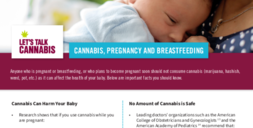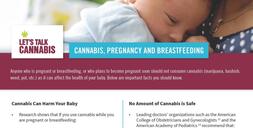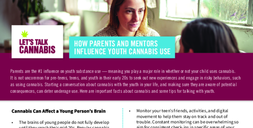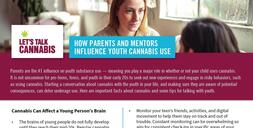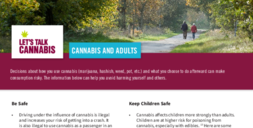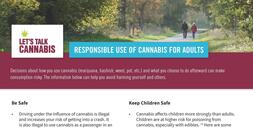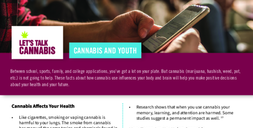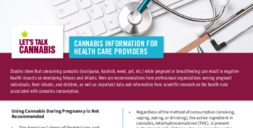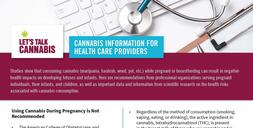Anyone who is pregnant or breastfeeding, or who plans to become pregnant soon should not consume cannabis (marijuana, hashish, weed, pot, etc.) as it can affect the health of your baby. Using cannabis can impair your judgement and coordination, and should only be used with caution. If you use, be aware that different forms of cannabis can have very different levels of THC (the psychoactive agent) and can cause severe reactions.
Yes. Research shows that if people use cannabis while pregnant, their babies may be born with a lower birth weight, making it likely the baby will experience health problems. Growth and development of the baby’s brain can be harmed.
No matter how a pregnant person uses cannabis (smoking, vaping, eating or drinking), the active ingredient in cannabis, tetrahydrocannabinaol (THC), will reach their baby in three ways:
- Through the bloodstream and into the placenta (the organ that feeds your baby during pregnancy).
- Through breast milk. “Pumping and dumping” doesn’t work. THC is stored in fat cells and is slowly released over several weeks, so it stays in your breast milk.
- Through secondhand smoke that enters the baby’s lungs.
No amount of cannabis is considered to be safe. Leading doctors’ organizations such as the American College of Obstetricians and Gynecologists and the American Academy of Pediatrics recommend that people who are pregnant or thinking about becoming pregnant soon, discontinue use of cannabis.
If you are pregnant or thinking about becoming pregnant soon, stop using cannabis. If you need help to stop using cannabis, dial 2-1-1 or go to healthvermont.gov/find-treatment to find treatment options near you.
People who already use cannabis for medicinal purposes should stop use in favor of an alternative treatment that research shows is safer during pregnancy. Talk to your doctor about any questions you have about cannabis.
People who are pregnant should not breathe cannabis smoke. It is bad for both the person who is pregnant and baby because, like tobacco smoke, it lowers oxygen levels, introduces toxins into the body, and harms your lungs.
Cannabis fact sheets

Contact Us
Vermont Department of Health
280 State Drive
Waterbury, VT 05671-8340

